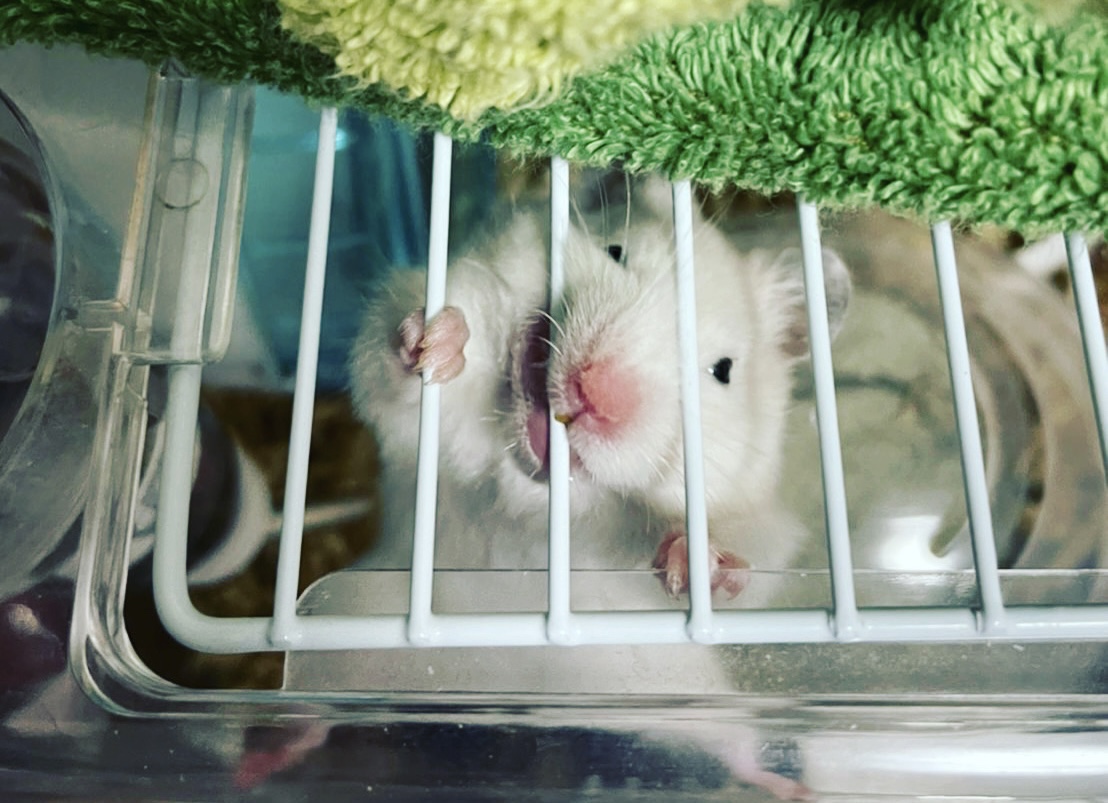My hamster started biting its cage, so I researched and tried to find out why it was biting the cage and what I could do to stop it.
If you are troubled by the noise of the hamster biting the cage, this article will help you.
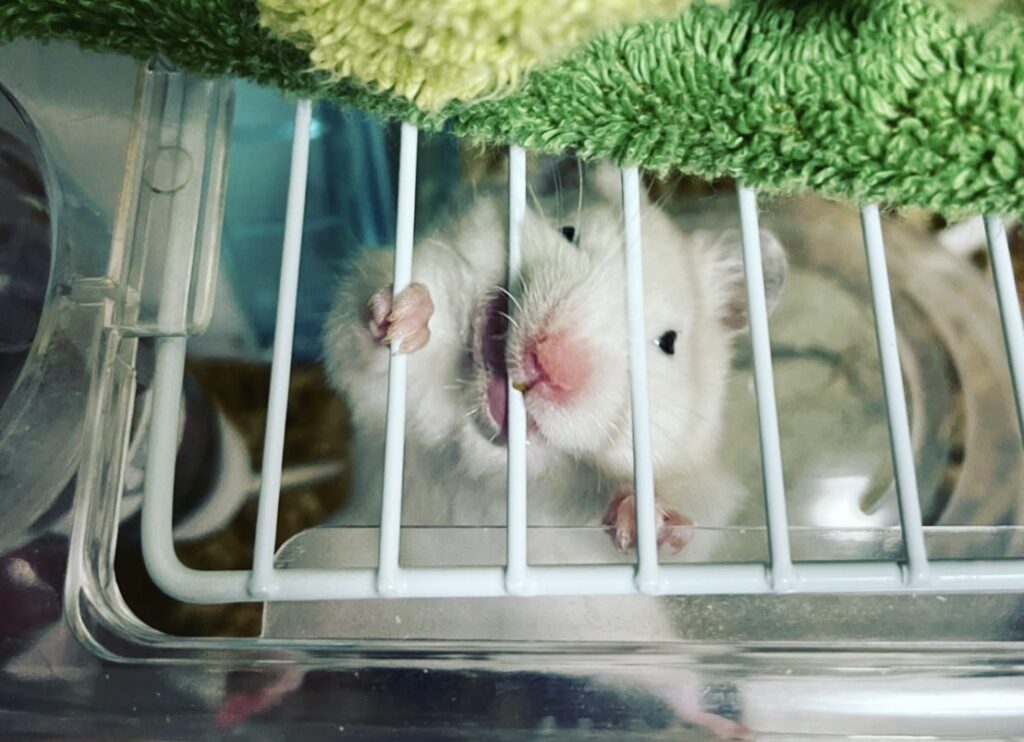
Why Do Hamster Bite Its Cage?
Because feeling stress
Hamsters sometimes bite the cage when stressed.
Stress may be caused by a small cage, uncomfortable temperatures, inadequate exercise space, noise, or poor nutrition due to improper feeding.
Because wanting to patrol outside the cage
Wild hamsters have a habit of patrolling around their dens at night.They may want to go outside to check on their cage surroundings.
Because Bored
If your hamster is biting its cage, your hamster may be bored.
It may not be satisfied with space or toys, and wants to go out to play.
Because wanting to grind its teeth
Hamsters’ front teeth are constantly growing.
Normally, they are kept at the proper length by natural wear from gnawing on food, but hamsters kept in environments that do not allow for adequate teeth grinding may chew on their cages to prevent their front teeth from overgrowing.
Because wanting to be fed
Whenever your hamster chews its cage, do you feed it every time to distract it?
It is possible that they have learned that biting the cage is a way to get food, and they chew the cage to show off when they want food.
Because there are places it could escape from the cage
If there is a wide hole or gap in the cage, the hamster may be thinking, “I can escape out of here!” and it may be trying its best to widen the hole.
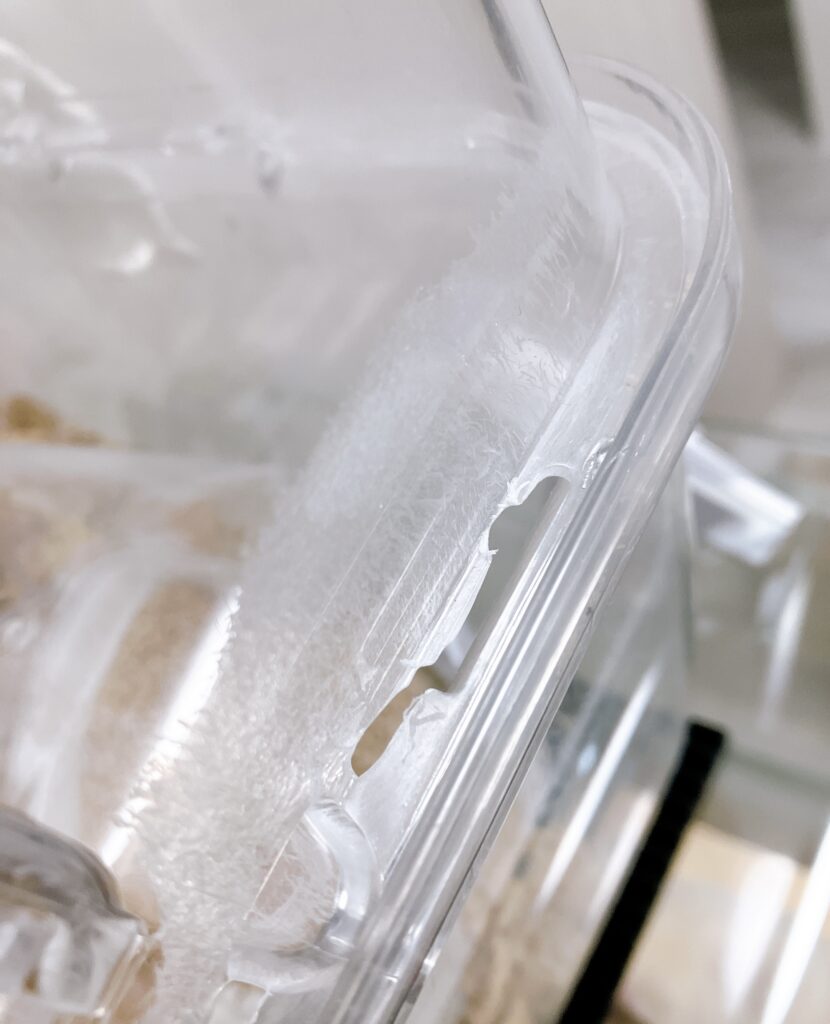
What are problems if you don’t make them stop biting?
“It’s noisy, but I’ll just move the cage to another room…”
“It won’t stop chewing, so I’ll just put up with it…”
Do you have any of the above thoughts?
Please don’t leave your hamster biting the cage without solving this problem!
The problems of the noise and lack of sleep for you are big enough problem.
Besides, it is also a serious problem for your hamster.
Biting the cage could cause a shortening of your hamster’s life span.
If its teeth becomes distorted due to continuous cage biting, it may not be able to eat their food, or the overgrown teeth may get stuck in their upper jaw and cause disease.
Let’s take countermeasures as soon as possible, so that both owners and hamsters can live in a comfortable environment!
What to do to stop your hamster from biting the cage?
In the following sections, I’ll show the measures you can take to stop your hamster from biting on the cage.
Please try them one at a time, as they vary from hamster to hamster.
Increase the time let your hamster play outside the cage
To help your hamsters get more exercise and satisfy their curiosity, let them spend more time outside their cage to play.
Are you afraid it’ll chew on the cables in your room?
Are you afraid it’ll pee on the sofa while you’re walking it?
Are you afraid it might escape when you don’t keep an eye on it?
If you are concerned about the above, it is safer to let your pet play in a “pet circle”.
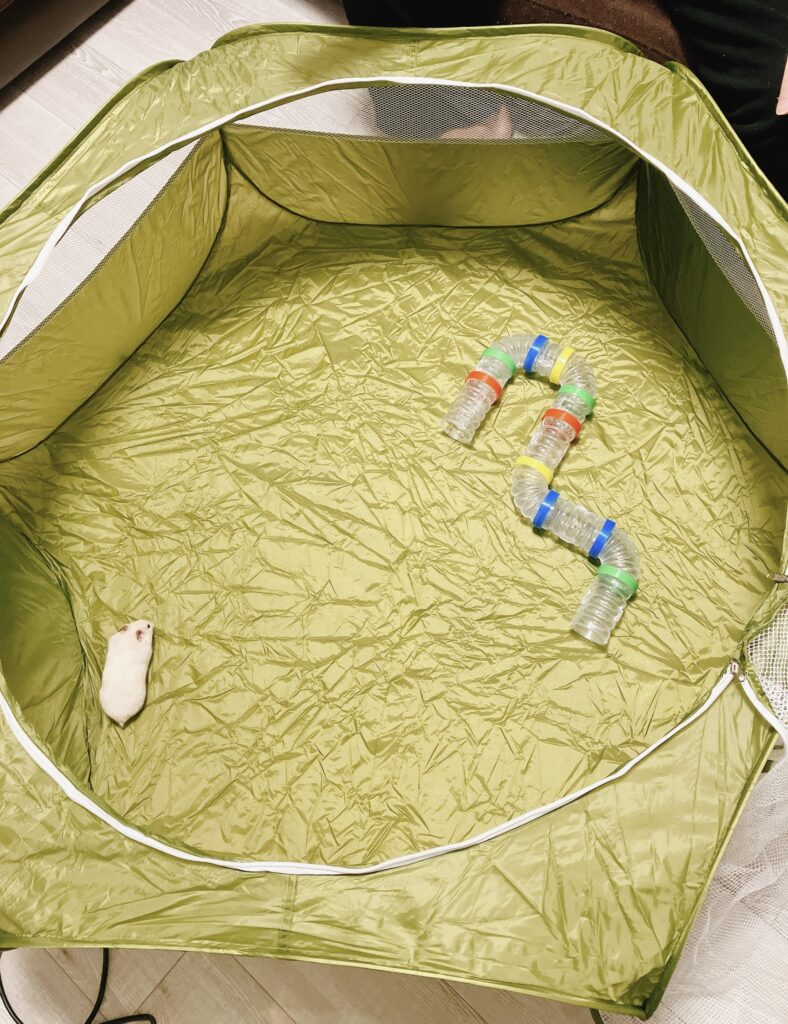
Give your hamster chew toys
Give your hamster a chew toy or wooden toy so that he can grind his teeth at any time.
They may stop their cage chewing behavior and start chewing and playing with it instead.
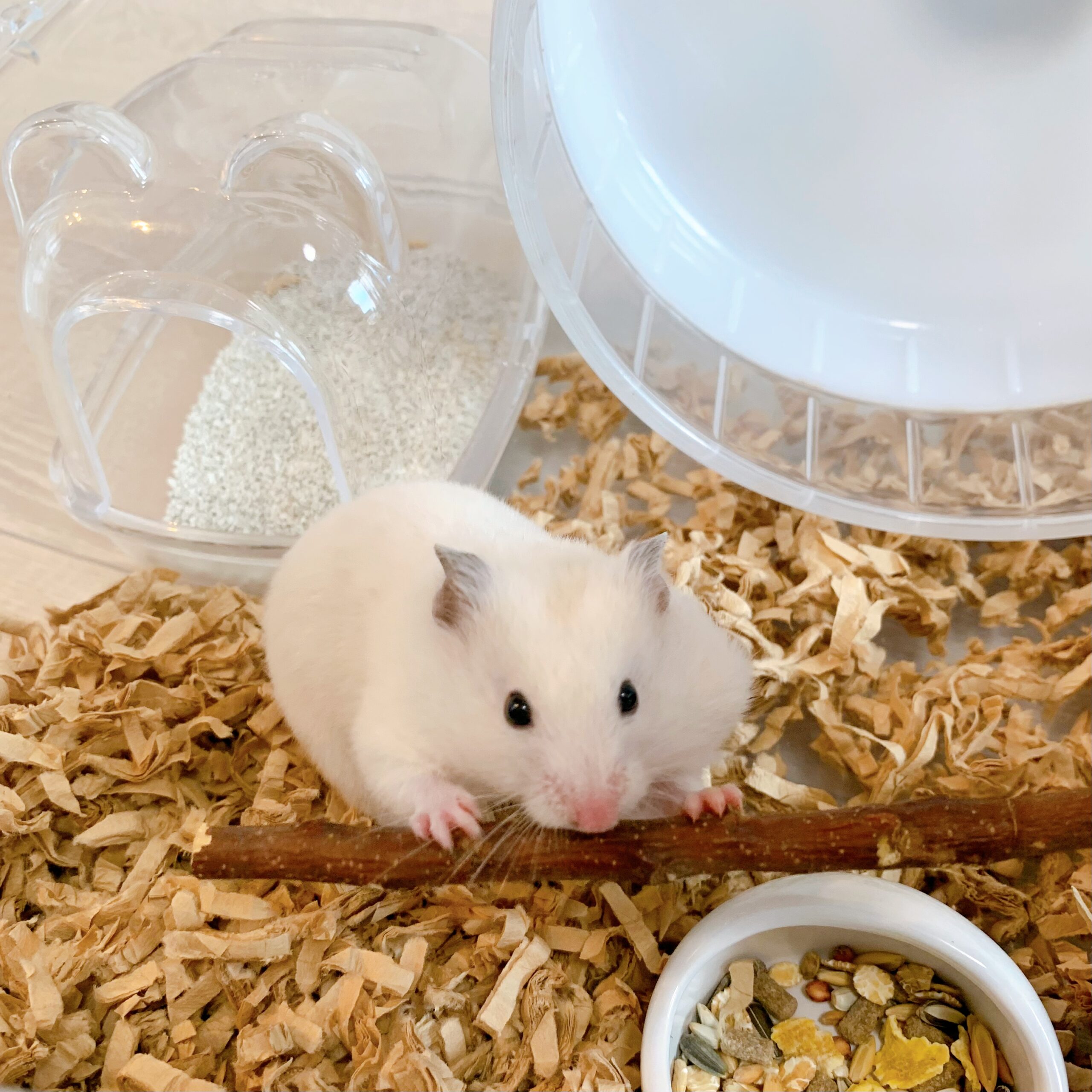
The “munchball,” a long, thin stick of wood rolled into a ball, is a great toy.
It’s made of a hard piece of wood, it also has the effect of grinding teeth of your hamster.
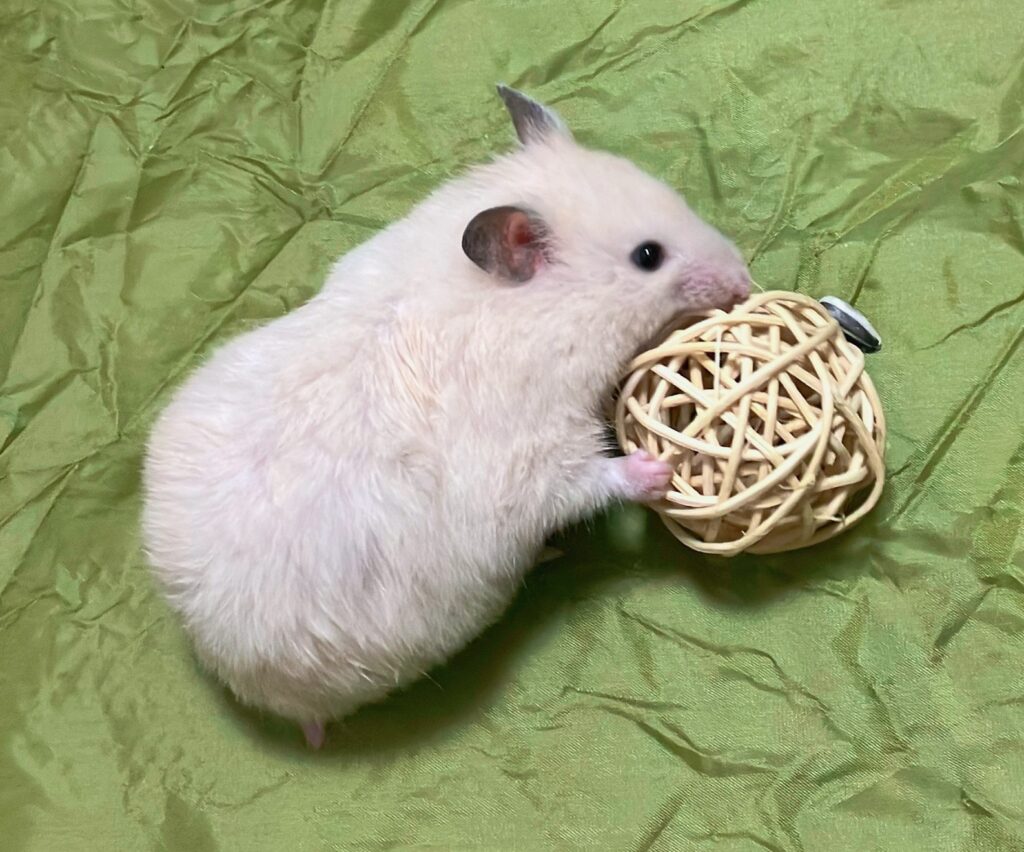
It is also recommended that you give them foods that help them sharpen their teeth.
Review the type and amount of feed
If you are feeding your hamster only sunflower seeds, or if your hamster is extremely nutritionally unbalanced, you should replace its staple food with pellets.
Pellets are a variety of powdered cereal grains, and are a versatile food that provides hamsters with all the nutrients they need to live a healthy life.
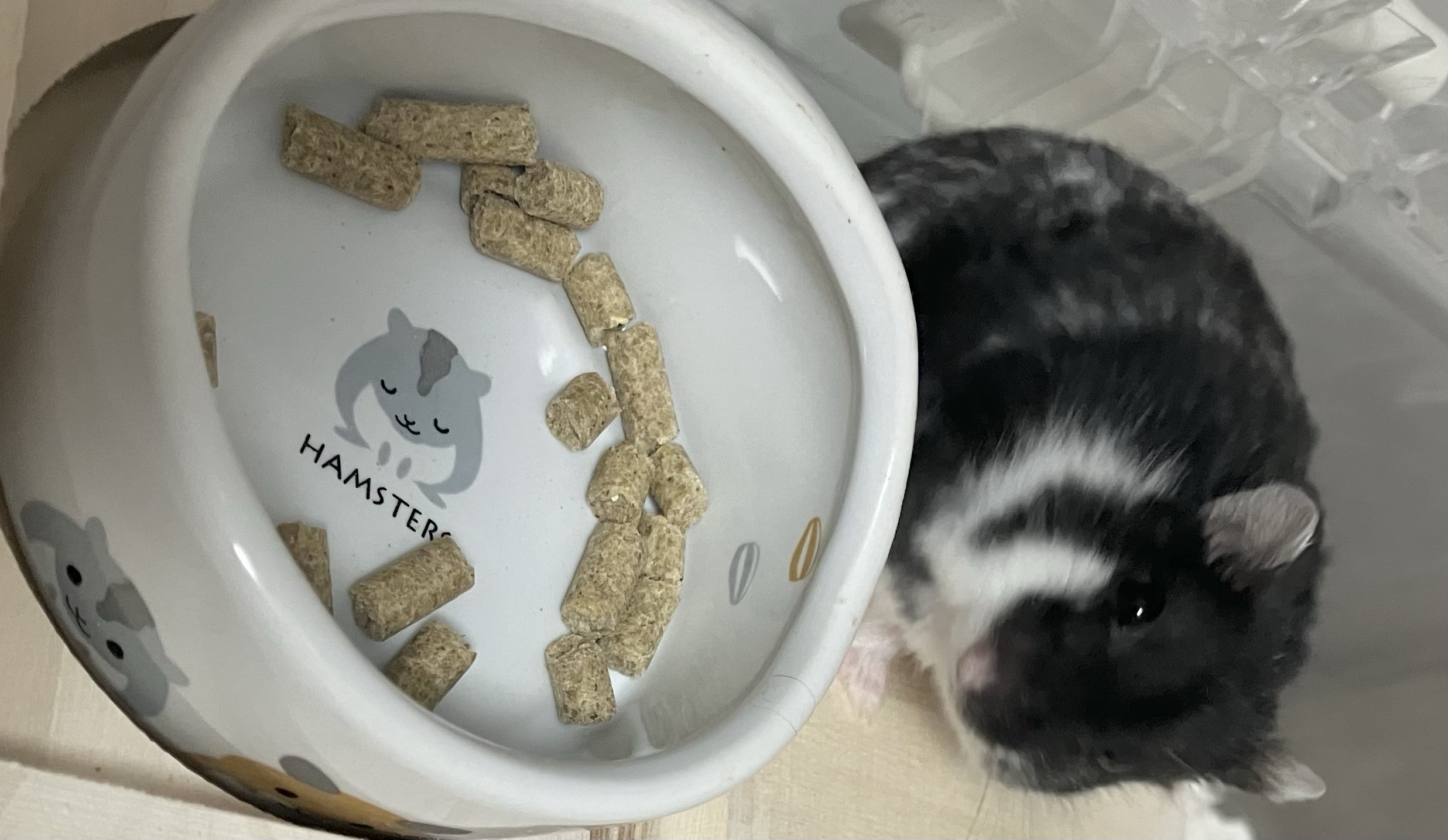
Also, if you do not know the weight of your hamster, review the amount of food you are feeding.
The following article shows the approximate amount of feed with pictures.
Please refer to it if you like.
redecorate the cage regularly
Varying the placement of ornaments in the cage can help prevent hamsters from becoming too accustomed to their environment and relieve boredom.
Use of training medication
Although it is not a fundamental measure and is not recommended, there is a means of applying training medication to the cage.
A product exists that uses a natural bitter ingredient extracted from apples to prevent hamsters from chewing on the cage.
It is not entirely harmless to hamsters, so try it with caution if all other measures are ineffective.
Change the type and size of the cage
If all of the above measures are ineffective, consider replacing the cage.
If your hamster is chewing on wire mesh or holes in the cage, replacing the cage with a cage that has no places for chewing (such as an aquarium-type cage) may fix the hamster’s chewing habit.
Also, if you are currently using a small cage, try to replace it with a cage that is as spacious as possible.
The minimum recommended cage size is 50cm wide, 30cm deep, and 30cm high.
You can find even larger cages when looking for cages for hedgehog for reptile.
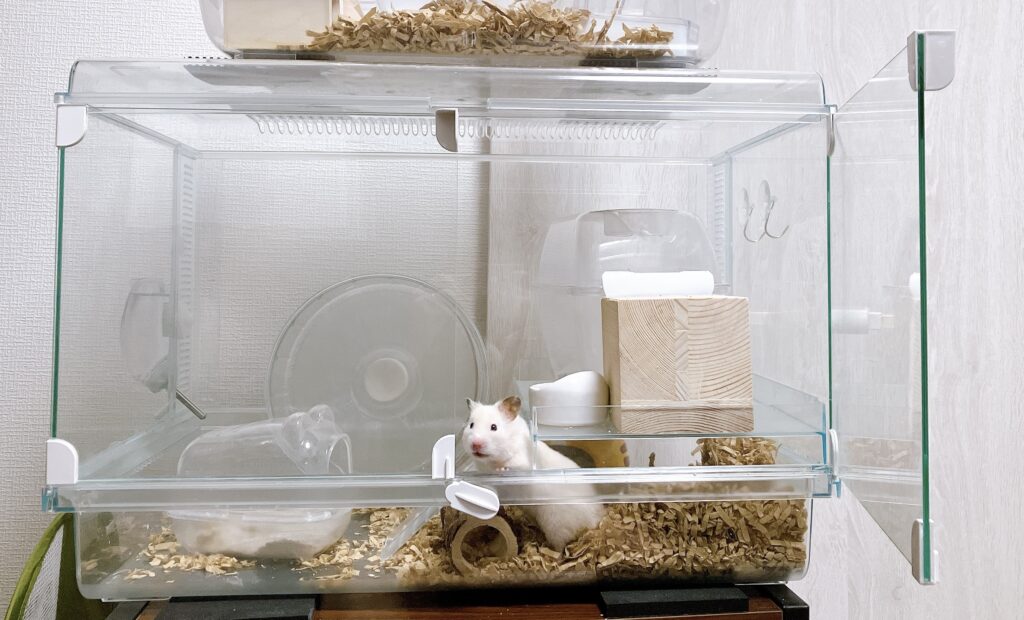
Measures NOT to take
DON’T breathe on your hamster!
Some owners blow on their hamsters when they want them to stop gnawing on their cage.
Although the hamster may be startled or uncomfortable and temporarily stop gnawing, it will cause the hamster a great deal of stress.
Please avoid blowing on your hamster. It will not solve the underlying problem.
DON’T paint pungently flavored food on the cage!
You should not apply pungently flavored food on the cage as a training drug.
Even for humans, it is very irritating…
For hamsters, whose sense of smell and taste are both sensitive, it is even more irritating and dangerous.
The strong stimulus may startle them and cause them to run wild, possibly injuring themselves. If eaten, it may damage the stomach and mucous membranes.
DON’T hit or surprise your hamster.
Of course, you should not try to stop your hamster from chewing the cage by hitting or startling them.
It is difficult to train hamsters and they cannot understand why they are being hit.
It will only cause stress.
Conclusion
I have introduced the reasons why hamsters bite their cages and the measures to stop it.
It could be caused by stress or an uncomfortable environment, so I recommend that you review the entire breeding environment.

